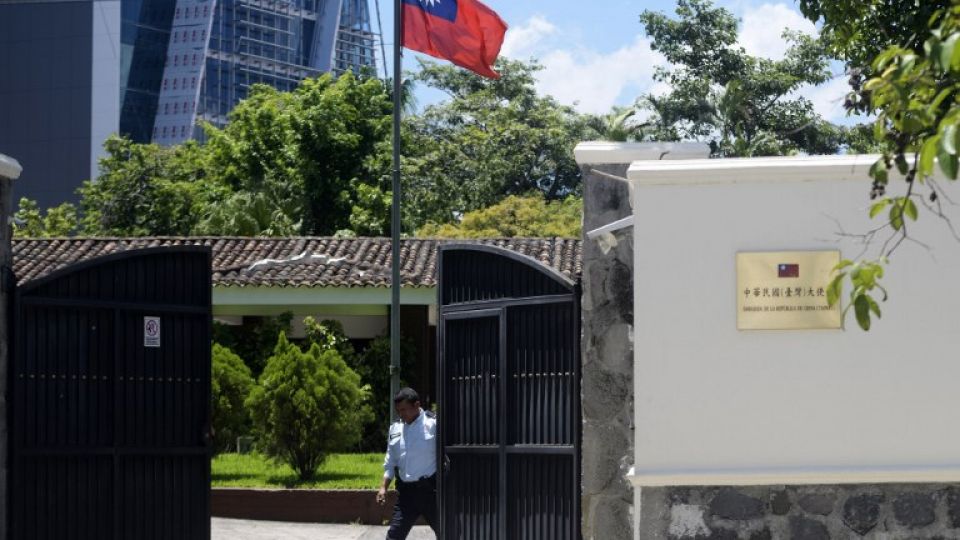November 27, 2018
Beijing makes overtures towards Taiwan after pro independence party loses big in local elections.
A Chinese mainland spokesman on Sunday said the mainland will continue to enhance solidarity with Taiwan compatriots and follow a path of peaceful development of cross-Straits relations after the Kuomintang Party won 15 seats out of a total of 22 being contested during local elections in Taiwan over the weekend.
“We have noticed the results of the elections,” said Ma Xiaoguang, spokesman for the Taiwan Affairs Office of the State Council, adding that the results reflected the strong will of the public in Taiwan to share the benefits of peaceful development across the Taiwan Straits, and their desire to improve the island’s economy and people’s well-being.
Among the 22 county and city chief posts, the ruling Democratic Progressive Party landed six, with one going to an independent candidate, according to the island’s election affairs authority.
The independent candidate, Ko Wen-je, won the election of Taipei mayor with about 3,200 more votes than Ting Shou-chung, a candidate from the Kuomintang. Ting filed a lawsuit to challenge the validity of the election in the early hours of Sunday.
Taiwan’s leader, Tsai Ing-wen, resigned as chairwoman of the Democratic Progressive Party on Saturday night to take responsibility for the party’s poor performance in the local elections.
The fundamental reason for the electoral defeat of the Democratic Progressive Party is that it did nothing to improve economic development on the island, said Zhang Wensheng, deputy head of the Taiwan Research Institute at Xiamen University, Fujian province.
He said that another reason is that the Tsai administration’s “pro-independence” secessionism has forced cross-Straits ties into a deadlock, causing Taiwan to fall behind the mainland market in many industries, including tourism and agricultural exports.
In the past two years, the number of tourists from the Chinese mainland, the largest source of tourism revenue for Taiwan, has slumped sharply.
“Taiwan residents are not satisfied with the stagnant economy and the declining living standards,” Zhang said. “Their disappointment and dissatisfaction are particularly reflected in their support for Han Kuo-yu, Kaohsiung’s Kuomintang mayor-elect.”
Han, who described the city as “outdated and poor” in his campaign trail and said he would make all-out efforts to boost its economy, impressed voters a lot, he added.
The failure is a lesson for the Democratic Progressive Party and also for all the parties on the island, reminding them of putting people’s livelihood at the forefront, said Zhang. He added that, “Any party or politician would be dumped by voters if they ignore the interests of the public.”
With a correct understanding of the nature of cross-Straits relations and the nature of exchanges between cities across the Taiwan Straits, more counties and cities in Taiwan are welcomed to participate in such exchanges and cooperation, said Ma, the spokesman.
Ma reiterated that the mainland will continue to uphold the 1992 Consensus on the one-China principle and to resolutely oppose separatist elements advocating “Taiwan independence” and their activities.
Alongside the elections, a referendum on Saturday on changing the name under which Taiwan athletes will compete at the 2020 Tokyo Olympic Games to “Taiwan” from “Chinese Taipei” failed.
The term “Chinese Taipei” was adopted by the International Olympic Committee in a 1981 agreement and later was recognized by all other international sports federations as referring to the sports delegation from the island.
Ma said on Sunday the failure of the referendum showed that putting the interests of the island’s athletes at stake is against people’s will and the attempts of “Taiwan independence” are doomed to fail.
Bao Chengke, deputy director of the cross-Straits Communication and Regional Development Institute at East China Normal University in Shanghai, said the failure of the referendum “is evidence of Taiwan people’s refusal of ‘Taiwan independence’ and a blow to the Democratic Progressive Party”.
On the other hand, exchanges and cooperation will definitely be strengthened for those counties and cities that recognize the 1992 Consensus with the mainland cities in various aspects like tourism, Bao added.


